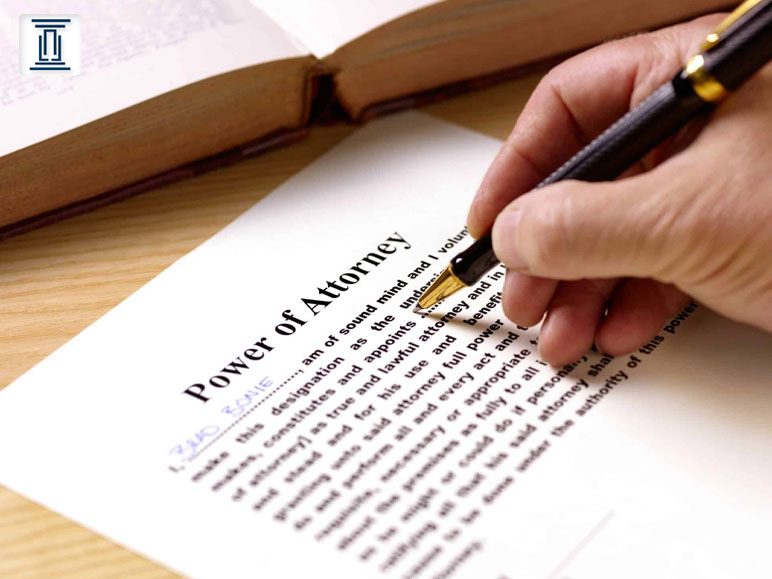Along with wills, trusts, and other legal forms in real estate planning, a power of attorney is one of the most important while you are planning for elder care. The power of attorney contains several powers related to that asset. But have you wondered, can power of attorney change a will? And what are the powers or limitations a power of attorney has? So, let’s understand the powers and limitations of the power of attorney and how a power of attorney can change your will, in this article.
What Is Power Of Attorney?

A power of attorney (POA) is a legal document that the principal (the person who creates the POA) gives a person legal authority to act on your behalf. The person who is creating the power of attorney is addressed as the principal, and whoever receives the authority is known as the attorney-in-fact or agent.
If you are the ‘principal’ then you can create a legal document where you can give the other person full authority or some limited powers. There are mainly four types of power of attorney. Before knowing the answer to ‘Can power of attorney change a will?’ have a look at these different types of power of attorney:
- General POA
In General Power of Attorney, you can give power to an agent who can handle financial matters and legal affairs.
- Limited POA
The Limited Power of Attorney or Special POA, allows the attorney-in-fact to act in certain circumstances. The main difference between a General POA and a Limited POA is the limitation of legal authority.
- Financial POA
The Financial Power of Attorney gives the attorney-in-fact the powers related to financial matters, including bill payments, transactions, and engaging with financial establishments.
- Medical POA
Just like the Financial POA, the Medical Power of Attorney gives the agent legal authority to handle and make decisions about medical care if the owner/principal cannot do so.
There are also some other popular types of Power of Attorney that you can use if your preference meets these criteria.
- Regular Power of Attorney: If you become disabled or incapacitated, then the POA will expire. You can either make a new Power of Attorney or change the agent.
- Durable Power of Attorney: The Double Power of Attorney is opposite to the Regular POA; even if the principal becomes incapacitated, the POA remains the same.
- Springing Power of Attorney: Like the Medical and Financial POA, Springing Power of Attorney gives the attorney-in-fact to make financial and medical decisions in certain events.
What Are The Limitations Of A Power Of Attorney?

If you are wondering about its limitations and other flaws in the power of attorney, then it depends on which type of POA you give to the agent. However, here are some general limitations of a power of attorney.
- A power of attorney cannot delegate their authority to another person.
- A power of attorney cannot act against the principal’s best interests or benefits.
- The agent cannot change the principal’s estate documents, planning documents, or will.
- The POA has no power to distribute assets or inherit assets.
- In general, if the principal dies, the power of attorney also dies.
- If the principal gives him permission and all the necessary paperwork to transfer the asset, then the attorney-in-fact transfers the asset or property.
Can Power Of Attorney Change A Will?

Now the question is, ‘Can the power of attorney change a will?’ or ‘Can power of attorney change ownership of property?’ Then let me tell you that you can change your will, but the power of attorney cannot change the will on your behalf.
After the principal’s death, the will takes effect, and the power of attorney expires. However, there are some powers that a power of attorney has, such as if the will is invalid, then the POA agent can claim the asset and challenge the will. Sometimes attorneys-in-fact have the legal authority and power to change financial beneficiaries. If you want to alter the power of attorney, then read the next section.
Can I Alter My Power Of Attorney?

Now you know the answer to ‘Can power of attorney change a will?’ but can you alter the power of attorney? So, the answer is yes, you can. You can revoke the power of attorney at any time. You can also change the agent or modify it by adding new terms or limitations.
Here Is A Process For Canceling Or Modifying The Power Of Attorney:
- Step 1.
First, if you want to revoke or change your power of attorney, you need to fill out a legal and formal revocation form. You can get help from a lawyer for this work.
- Step 2.
It is necessary to advise your agent/attorneys about the change to avoid problems. Make sure to mail them formally with all changes, or you can send them a copy of the new document.
- Step 3.
Once you file the new attorney document through your lawyer, you can collect the old copy from your agent and hand over a copy of the new attorney document.
CONCLUSION: Can I Give Power of Attorney In A Will?
In the end, several people ask a question about making a will and power of attorney together. So, financial experts advise always to make a will and the power of attorney together. This way, the POA will take care of the asset while you are alive and will provide inheritance and protection after your death. Creating a will and power of attorney together means creating a neverending protection of your assets. So, I hope you find the answer to ‘Can power of attorney change a will?’ through this article. If you have any other questions regarding this article, let me know in the comment section. Also, learn more general and useful law advice through these articles below…
Read Also:


